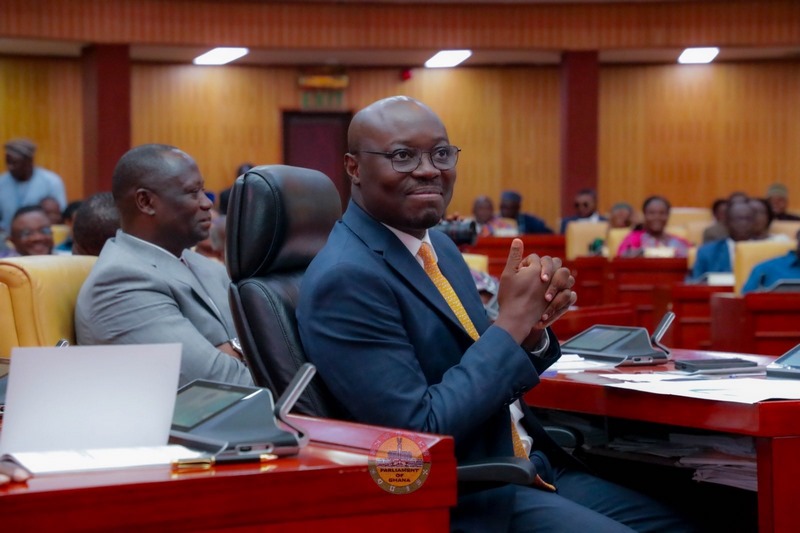adverts
The Government of Ghana has formally informed the International Monetary Fund (IMF) of its decision to cap public sector wage increases at 10 per cent for 2025, a move aimed at tightening fiscal discipline under the country’s ongoing three-year economic recovery programme.
This decision was disclosed in the IMF’s latest review report of Ghana’s $3 billion Extended Credit Facility (ECF) arrangement, which is scheduled to end in 2026. According to the report, the wage ceiling is part of broader public expenditure rationalisation measures outlined in the government’s 2025 budget.
“On the expenditure side, the 2025 budget comprises measures that aim at containing primary expenditure, including capping public sector wage increases to 10 per cent,” Ghanaian authorities communicated to the fund.
adverts
Data from the Ministry of Finance show that Ghana’s public sector wage bill is projected to exceed $7 billion this year — consuming over 30 per cent of total expected revenue and grants. This rising wage burden is a major driver of the country’s fiscal imbalances.
The 10 per cent cap on salary increments means that no public sector worker — from teachers and nurses to civil servants and administrative staff — will see their pay increase by more than that threshold in 2025.
The policy disclosure comes ahead of the mid-year budget review scheduled for Thursday, July 24, 2025, to be presented to Parliament by Finance Minister Dr Cassiel Ato Forson. Labour unions are watching closely for clarification on how their concerns will be addressed within the new spending framework.
Groups such as the Ghana Registered Nurses and Midwives Association, teachers’ unions, and other public sector bodies have already raised concerns about rising living costs and stagnant wages, setting the stage for potential pushback.
In addition to capping wages, the government has pledged to:
- Limit spending on goods and services.
- Streamline operations of statutory funds,
- Eliminate programmes with limited value for money, and
- Pace the implementation of foreign-financed capital projects.
Despite these constraints, the government has committed “limited additional funding” — estimated by the IMF to be less than 0.1% of GDP — to support critical health and agriculture initiatives in light of reduced development assistance, especially from USAID.
A comprehensive audit of Ghana’s domestic Wolfe is also underway.Town Preliminary findings suggest that a significant portion of the reported arrears lacks valid documentation, raising the prospect of downward revisions. This could ease pressure on public finances if validated.
The finance minister reiterated the government’s commitment to reforming the Single Spine Pay Policy, linking remuneration more closely to productivity.
“This will reduce the wage overruns emanating from ad-hoc reviews in conditions of service, fuelled by the in-year labour agitations,” Dr Forson noted.
He criticised what he described as a growing trend where public institutions “exploit weaknesses in the pay system by staging protests to agitate for enhancements in their conditions of service — a backdoor way of increasing their consolidated salaries.”
As the government walks a tightrope between satisfying IMF fiscal benchmarks and managing domestic labour demands, analysts warn of possible industrial unrest unless stakeholder engagement is strengthened.
With inflation now trending downward and the cedi showing signs of sustained stability, the government hopes to consolidate its economic gains. However, how well it navigates wage management in the face of labour agitation may determine the success of its broader economic reform agenda.
Click the link Puretvonline.com | WhatsApp Channel to join the WhatsApp channel
GOT A STORY?
Contact/WhatsApp: +233243201960 or Email: manuelnkansah33@gmail.com


